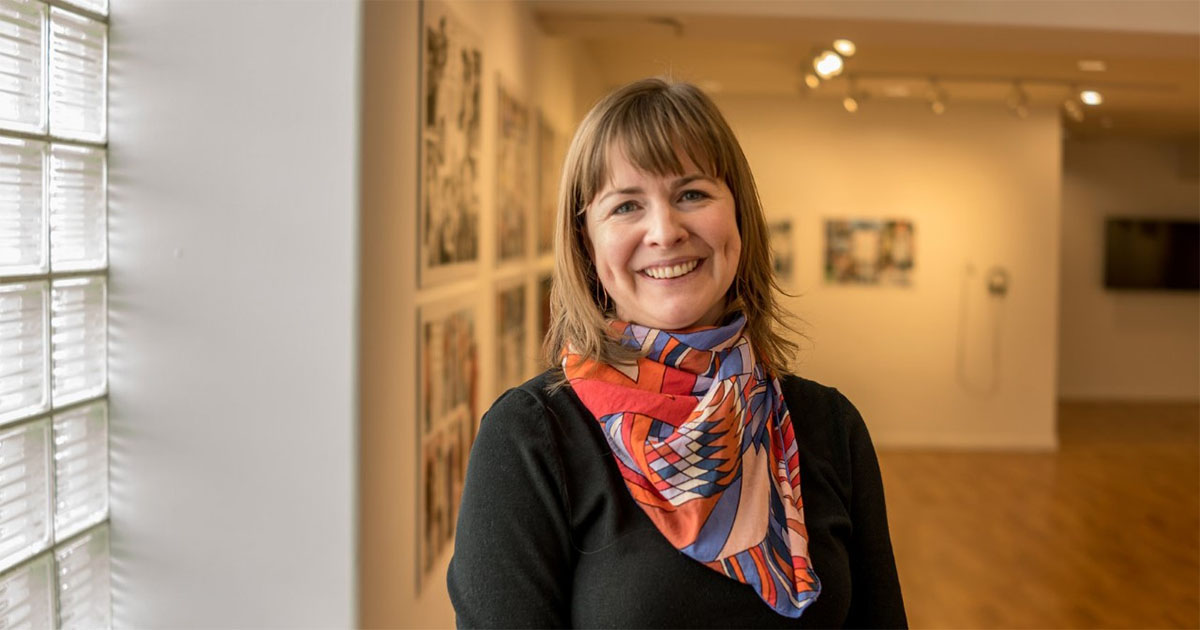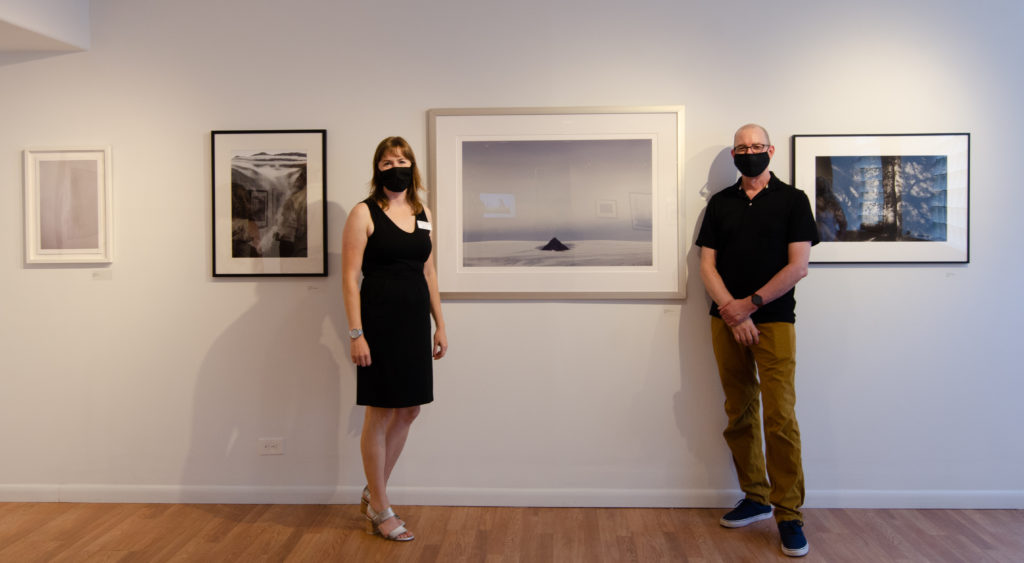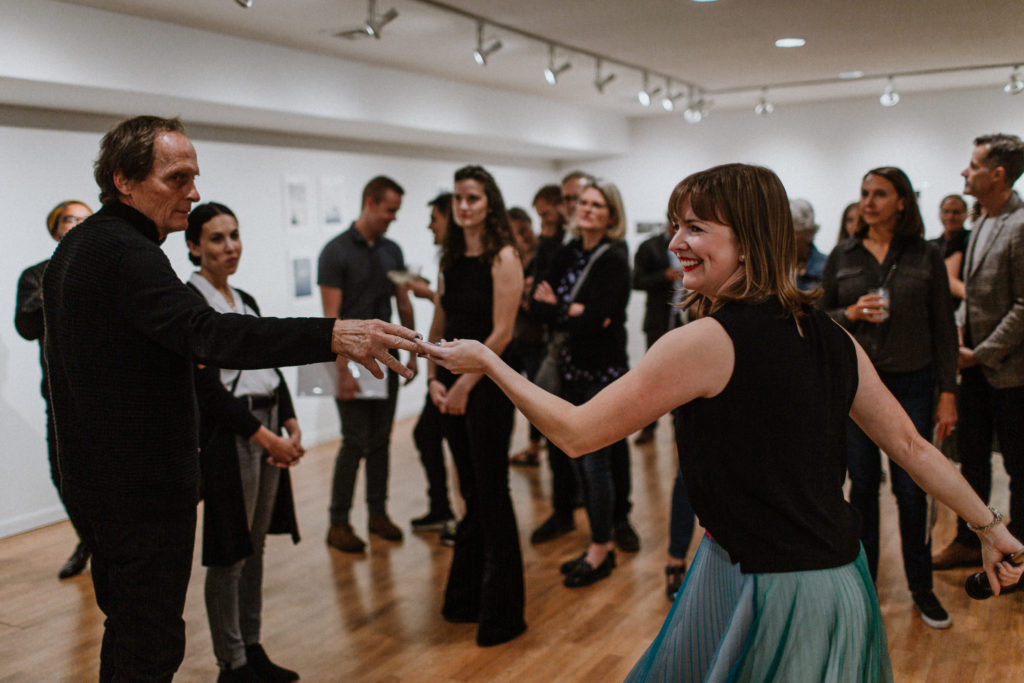
Championing the Arts by Embracing Challenge and Confidence
Samantha Johnston recently concluded a whirlwind of a year. As executive director of the Colorado Photographic Arts Center (CPAC), Johnston led the charge in preparing for and then launching Month of Photography Denver (MOP Denver), a biennial festival that celebrates all-things photography, which is held every other year in March.
But, for several reasons, this year’s festival was different. Not only would it be the first time that CPAC took leadership of the entire festival, which was founded by photographer/curator Mark Sink, but also: COVID.
“People worried whether we were still going to have it,” Johnston says. Yet, as with many events across the country during the past year, the show did indeed go on, albeit a bit differently than in the past.

“It all came together and worked out,” Johnston says, noting that some programming was omitted while others “exceeded expectations.”
A self-described “yes person,” Johnston thrives on challenge, especially when it comes to proving herself which, she admits, has itself been the biggest challenge of her career.
“Whether it was starting out as an educator right out of undergrad, or changing careers and becoming executive director, I’ve learned over the years that I’m good at bringing about change and growing programs,” says Johnston, a former arts teacher.
The transition from teaching middle and high-schoolers to leading CPAC was indeed a challenge. Founded in 1963 by photography legend Hal Gould, CPAC has a long history in Colorado as Denver’s only nonprofit organization dedicated exclusively to the art of photography and the artists who create it. After starting her job in September 2015, Johnston was faced with moving the organization two times before relocating it once again in early 2017 to its current, and hopefully final, “premier” location near the Denver Art Museum—all the while also working to expand programming and fundraising.
“I always look at ways to honor its amazing history while continuing to bring about change for the organization,” Johnson says, while also acknowledging the contributions of her “many mentors” and CPAC’s staff and board.
“Growing CPAC has been a team effort, for sure,” she adds.
CPAC has not only grown with Johnston at the helm, it has also become recognized for its nationally renowned photographers and programs. One of its newer programs, the Veterans Workshop Series provides free workshops and one-on-one mentoring sessions to Denver-area military Veterans seeking photographic exploration and education.
“Art is a release,” Johnston says, “a way to see the world, a way to process and understand. I work with my staff to make CPAC a place that is open and welcoming to have conversations, learn, and share.”
Born in Manhattan, Johnston was raised alternately between New York City and the Connecticut suburbs. Her parents often took her to museums, she says, which “inspired my love of the arts.”
But it was during high school, especially the support of a “great” photography teacher, that Johnston developed her passion for photography.
“After taking the first photography class, I was hooked!” she says. “The darkroom was my escape. I spent hours printing, developing, and learning about new ways to manipulate images.”
So inspired by that teacher, Johnston minored in education as a student at Alfred University where she explored “everything from photography to glass blowing.” Right after college, she landed a job teaching middle and high school visual art and a few years later enrolled in a low-residency MFA program at Lesley College of Art & Design,
Johnston says that completing the intense master’s program while teaching full-time was one of her proudest achievements, but also a struggle.
“It was a constant balancing act and pushed me to the edge,” she says. “However, it made me realize how important a role balance plays in all aspects of life.”
Looking to make a change in that direction, Johnston and her husband moved to Colorado’s Front Range. She continued her career as an art educator and also began rebuilding her photography network. Nearly five years later, with a total of 12 years as a teacher under her belt, Johnston admits to feeling “burn out.”
“I wasn’t sure what I wanted to do next,” she says, “but I knew it was something in the arts.”
So, like any good educator, she began to research. Her discovery led her to University College where, in 2014, she enrolled in the Arts Development & Program Management certificate program,completing it in the next year.
She directly credits her work in the program for landing the job at CPAC.
“It’s not a coincidence,” she says. “I did a lot of case study work about CPAC … the real-time research opportunity gave me a stronger understanding about grants, funding, and tax documents, and broadened my understanding of the nonprofit work in general.
“The program at DU gave me confidence to move into a new career,” she says.

An accomplished and highly exhibited photographer, Johnston’s arts practice is not as active as it once was. Although she continues making pictures, primarily focusing on light in her home and garden, she says she isn’t always producing prints or applying to shows, as she once did.
“My focus has shifted,” she says. “I know my personality, and I give my all to making art and my role as executive director,” which includes spending a significant amount of time reviewing talented artists’ work and curating shows — a different form of creativity that is valuable to me.”
“Everything needs to ebb and flow,” Johnston continues. “I continue to find ways to balance, and I know I will come back to making more work.”
In the meantime, new challenges are right around the corner, such as CPAC’s major fundraiser, which is traditionally a sit-down dinner event, and planning for the rest of the year.
“We’re still kind of balancing what it will all look like,” Johnston says.
If history is any indication, expectations are sure to be exceeded.
-
June 18, 2024
When Everything Can Be Mapped, Maps are Everything
Joseph Kerski, a GIS adjunct faculty member and Enrichment Program instructor at DU, is an evangelist for geography, mapping, and GIS education.
-
June 7, 2024
Enrichment Classes Offer Taste of Cutting-Edge Research
With the free R1 Series within the Enrichment Program's slate of short noncredit classes, you can get a taste of DU's prominent research activity.
-
March 27, 2024
Denver Airport Spokesperson Credits her Communication Management Master’s
Ashley Forest's master's degree in Communication Management from University College propelled her career to new heights.
-
March 1, 2024
Q&A: Communication Management Program Looks Constantly Ahead
Academic Director Dr. Cindy Cragg keeps her finger on the pulse of the communications field in order to ensure the program stays cutting-edge and relevant to professionals in the industry.